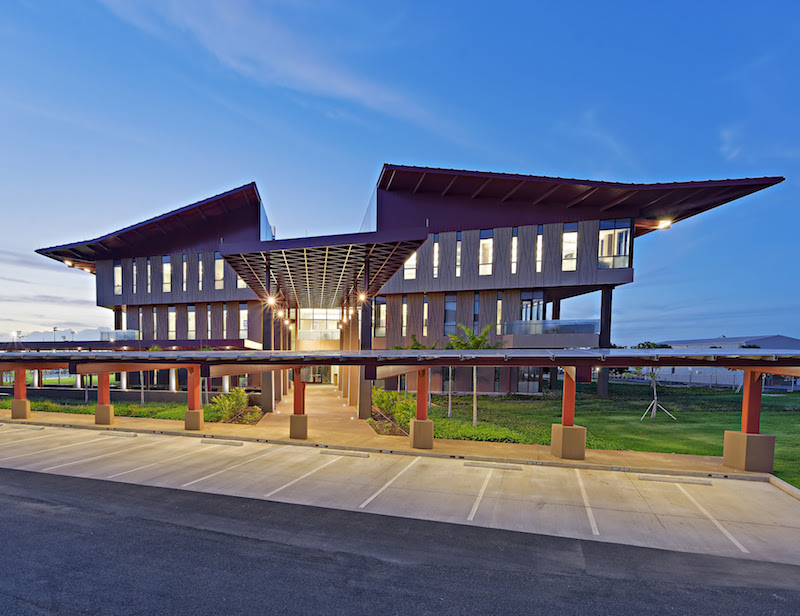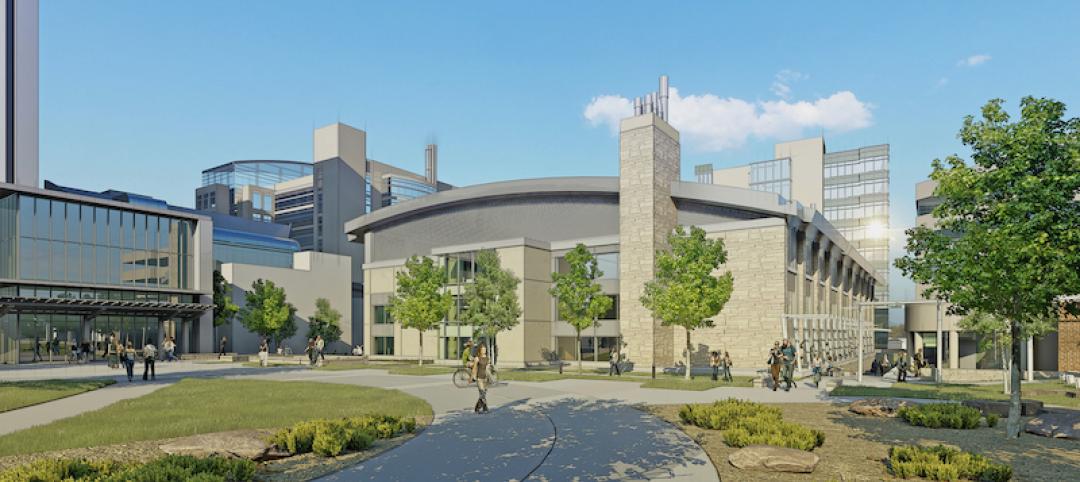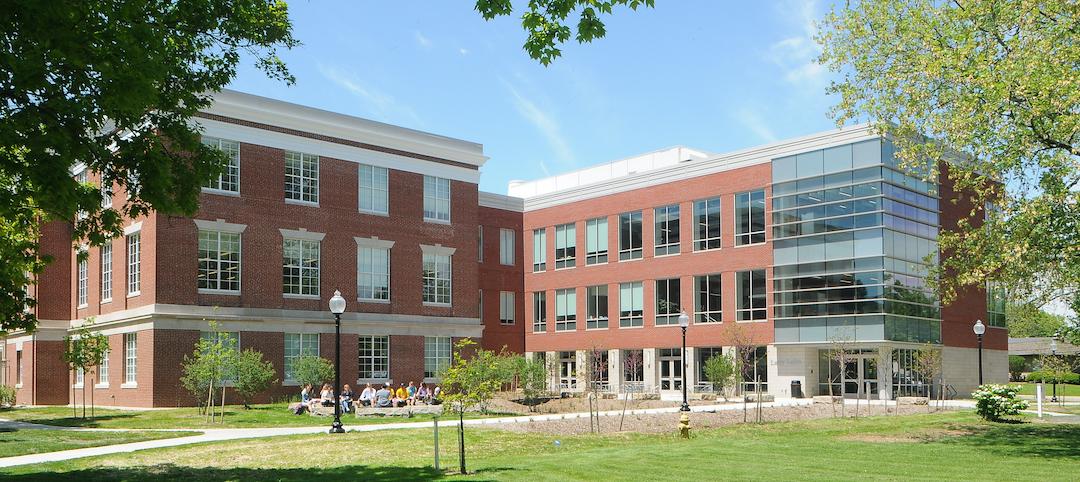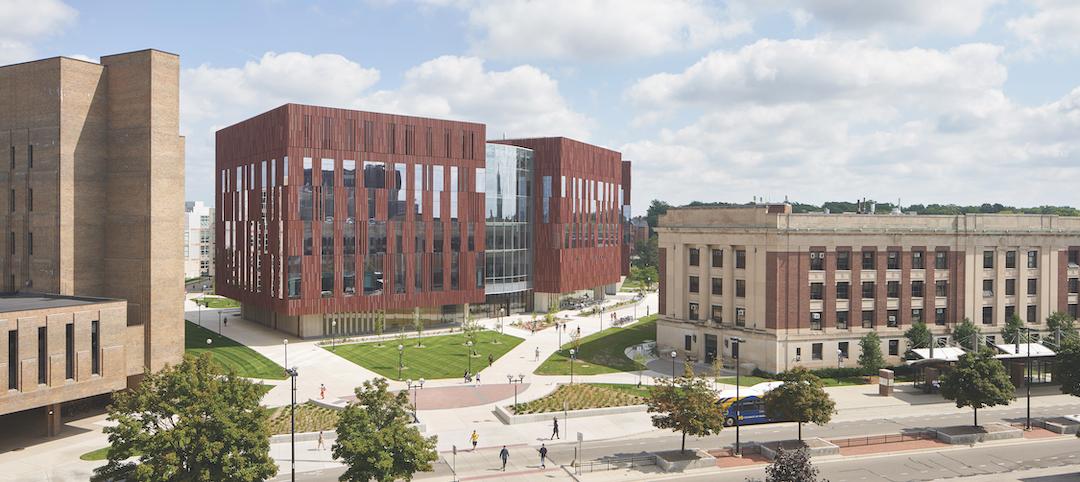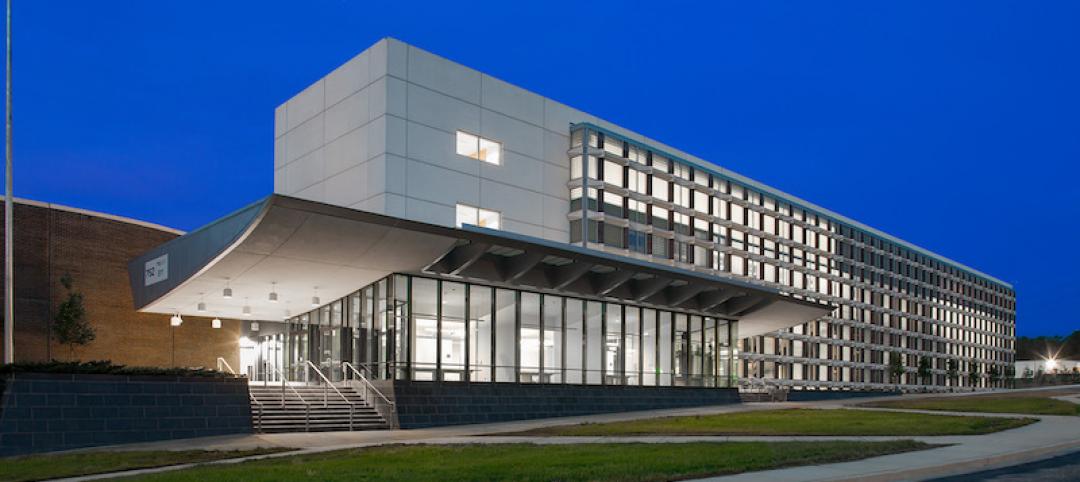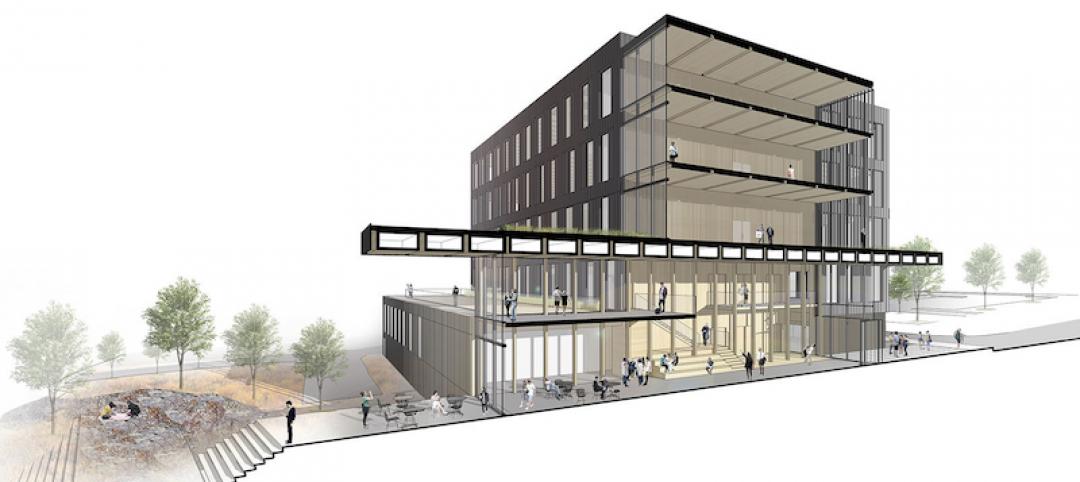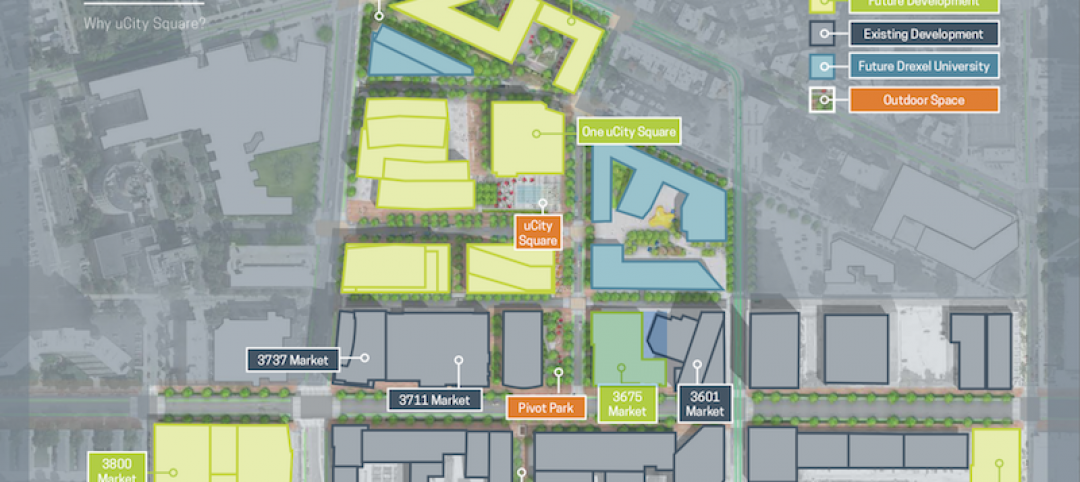A new 136,497-sf building in Oahu, Hawaii has become the largest forensic anthropology lab in the world. Designed by SmithGroupJJR, the Defense POW/MIA Accounting Agency’s (DPAA) new Forensic Identification Laboratory combines operations that were previously dispersed across three military locations.
By combining these operations into one facility efficiency, productivity, and support of the DPAA mission, which is to “provide the fullest possible accounting for missing personnel to their families and the nation,” are all greatly improved.
The building has advanced investigation laboratories, a flexible and sustainable working environment for staff, and appropriate spaces for the families of the deceased. The primary laboratory space includes the DPAA Laboratory, the Material Evidence and Life Support Investigation Lab, a DNA lab, and a complete forensic medicine facility.
The DPAA Laboratory space is on the third floor of the building and includes 70 examination tables. Half of the floor is dedicated to lab space while the other half consists of a family viewing room, offices, and administrative spaces. The DPAA Laboratory conforms to Biological Safety Level Two.
The Forensic Identification Laboratory’s design is meant as an homage to the Hickam Air Force Base (now known as Joint Base Pearl Harbor-Hickam). The uniquely Hawaiian structure features structural concrete and pre-cast concrete panels that are fashioned with an abstracted Hawaiian pattern, a three-story garden space, and a craftsman-like shade trellis that welcomes visitors.
SmithGroupJJR also acted as the MEP engineer and laboratory planner and programmer.
Related Stories
Laboratories | Jul 24, 2020
Customized labs give universities a recruiting edge
CO Architects is among a handful of firms that caters to this trend.
Laboratories | Jun 24, 2020
CDC set to build the most advanced high containment laboratory in the country
Flad Architects, Page Southerland Page, and WSP will plan, program, and design the HCCL.
University Buildings | Jun 3, 2020
Renovation can turn older university buildings into high-performing labs
David Miller of BSALifeStructures offers technical advice on renovation of college and university laboratories and scientific research facilities.
Giants 400 | Aug 13, 2019
2019 Science + Technology Giants Report: Operational flexibility is a must for S+T buildings
The science and technology (S+T) sector is arguably the industry’s most complex because it caters to a diverse clientele with specific priorities and imperatives, according to Building Design+Construction's 2019 Giants 300 Report.
Laboratories | May 21, 2019
Georgia Tech Research Institute adds 350,000 sf of specialized tech facilities
McCarthy Building Companies with Flad Architects acted as the design-build team.
Laboratories | Apr 23, 2019
Translational health science environments: 6 strategies for open innovation and knowledge transfer
Simply putting researchers and clinicians in the same building with hopes that serendipitous collaborations will ensue will often not yield the outcomes organizations seek.
Sustainable Design and Construction | Apr 9, 2019
One of the largest zero-carbon, net-zero buildings is rising in Spokane
Catalyst will be part of an innovation hub, with Eastern Washington University as its main tenant.
Laboratories | Apr 1, 2019
The Karolinska Institute’s new laboratory building
C.F. Møller Architects designed the building.
| Mar 21, 2019
Preserving Edison's "Corporate" R&D Lab in West Orange, N.J.
Report on Thomas Edison's West Orange, N.J., Laboratory.
Mixed-Use | Oct 25, 2018
Philadelphia’s uCity Square kicks off major expansion drive
This innovation center has several office, lab, and residential buildings in the works.


